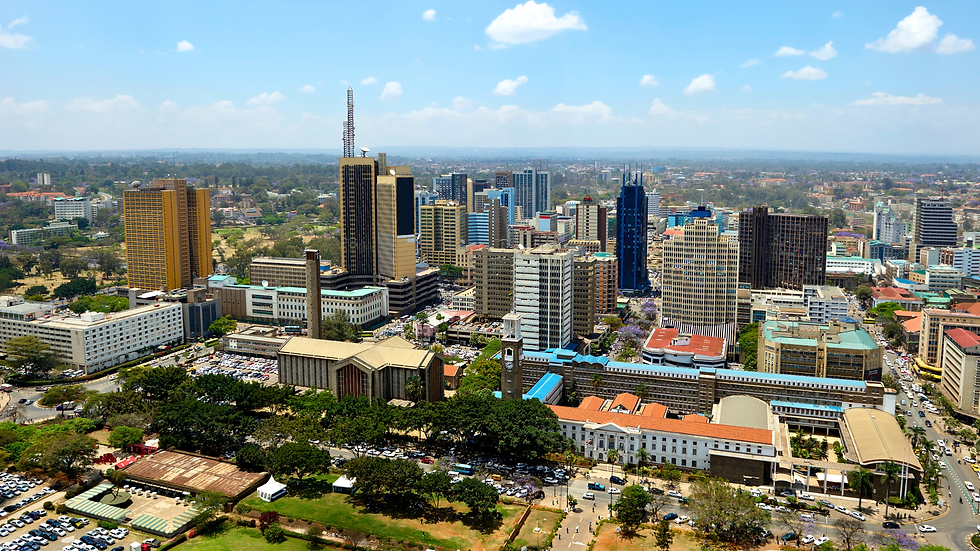Where is Land on the Global Agenda? Redefining Its Role in Development and Economic Policy
- Dr. Jamal Browne

- Oct 24, 2025
- 4 min read
The recently concluded World Bank and IMF Annual Meetings presented a unique opportunity for me to deepen my understanding of how world leaders and some of the most powerful institutions of our time engage with key development and humanitarian challenges.

Themes covered included the Global Economic Outlook and Growth, Trade and International Cooperation, Monetary and Fiscal Policy, Financial Stability and Governance, Post-Conflict Economic Recovery, and Regional Economic Resilience, to name but a few.
Unfortunately, land in its many facets and demonstrated cross-functionality was largely invisible across the agenda.
I can vividly recall attending my very first global event at the World Bank Headquarters in Washington, D.C., back in 2013. Then a graduate student at the University of the West Indies, eager to present my academic research on a global stage, I was largely unaware of the deeper implications of my work and the dynamics that would ultimately determine the value placed on my contributions in interdisciplinary global settings.
That was long before I fully understood the cross-sectoral value of good land governance and, moreover, the political economy of international organisations — how money, power, and influence shape development priorities.
As I followed the discussions at this year’s Annual Meetings, I could not help but reflect on the many conferences, working group meetings, workshops, training events, and webinars I have attended over the years — some driven by personal ambition, others by a quest for deeper insight and knowledge, but ultimately in the hope of advancing the agenda on tenure security and, more broadly, land governance as a response to contemporary development challenges.
Challenges, Gaps, and Missed Opportunities
I remain confident in the quality of work produced by researchers and institutions seeking to address critical empirical, data, and evidence gaps. Yet far more work is required. We are still woefully behind in global reporting on tenure security (SDG Indicator 1.4.2) after more than a decade of efforts, with current rough estimates suggesting that improvements are marginal at best.
I also commend the many civil society organisations that keep this agenda alive at the local and grassroots level, and of course, the development cooperation and philanthropic entities that continue to support them. These partnerships are now a premium amid growing donor fatigue and dwindling development funding, and must therefore be treated with the utmost care and responsibility.
All of this, however, unfolds against a global economic order largely shaped by international financial institutions (IFIs) that remain notably silent on the role of land governance in international economic relations — particularly in the areas of trade and development.
Why should this matter?
Having served in the UN System on two occasions — the most recent in a substantive role covering housing, land, and property rights for persons displaced by conflict and natural disasters — I can say with certainty that the UN often takes its cues on priority development issues from IFIs. The same holds true for regional and central banks.
Essentially, we face a global multilateral order without clear transactional or non-transactional incentives to promote secure tenure or good land governance among Member States, many of whom continue to grapple with severe development and humanitarian challenges linked to the control, use, and development of land.
While this year’s gathering was, for all intents and purposes, a monumental success, it also confirmed a lingering concern: the real challenge facing the land sector is not merely cosmetic; it runs far deeper than ineffectual messaging.
The urgency and cross-sectoral linkages identified by land experts — based on numerous interdisciplinary studies — have gained little to no traction with the leadership of global IFIs and key multilateral institutions.
This is compounded by the troubling scarcity of professional opportunities within the land sector, particularly when compared with other critical areas of development and humanitarian work.
As we have learned, professional opportunities grow scarce where funding is limited. Unfortunately for the land sector, global needs — addressing insecure tenure and weak land governance structures — have far outstripped our capacity to create and sustain the critical mass of expert and technical roles necessary to effect meaningful change.
Towards a Future Where Land Matters
While I applaud those who have assumed this colossal mantle — filling critical data and evidence gaps, building capacity at the local and grassroots level, and fostering a sense of community among stakeholders globally — the scale and urgency of the challenge demand that we re-engage IFIs, via their senior leadership, and key players in the multilateral space on the central role of good land governance in global trade, finance, and development.
This approach may seem bold, even brash, to some. But the reality is that business as usual has never truly been a viable option. I am confident we possess the people, the data, the evidence, and the key messages needed to make a compelling case for greater traction in global economic relations.
With a coalition of willing actors from across the land sector, and the backing of prospective allies — among them influential figures within the World Bank, IMF, key regional banks, and select member states — I can envision a future in which the systems governing the control, use, and development of land are treated as integral components of the global economic order.
When global leaders converge on Bangkok, Thailand, for the 2026 Annual Meetings, I am hopeful that land, in all its facets and demonstrated cross-functionality, will finally be reflected appropriately across the agenda.






Comments